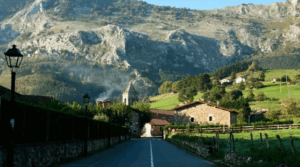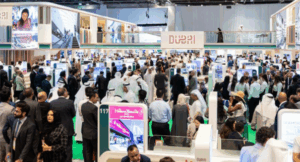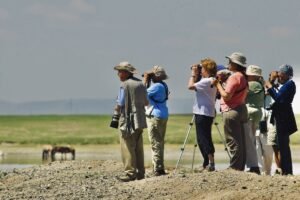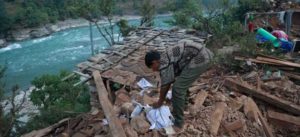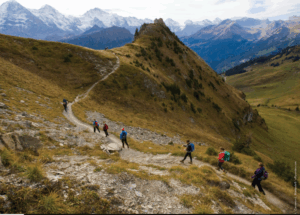Regional cooperation supports South Asia’s resilient recovery
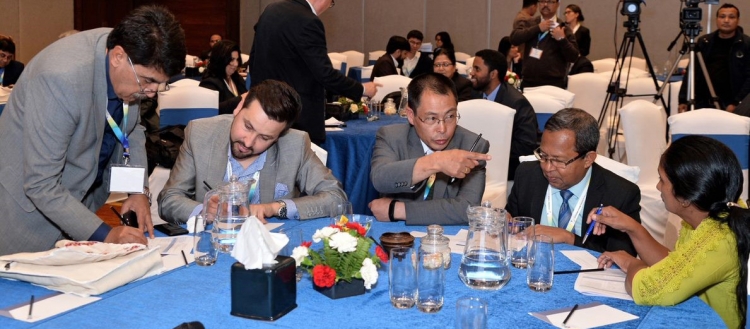
Hartwig Schafer & Cecile Fruman —
Before the COVID-19 pandemic struck, more than 100 weather and water experts from all eight South Asian nations gathered in Kathmandu to talk about regional cooperation. All shared a concern about increasingly intense storms and deadly flooding in the region. The group of scientists put aside national and political differences, instead focusing on datasets and technical tools that can produce earlier, accurate weather forecasts for the public and save thousands of lives through effective early warning systems.
That kind of collaborative approach to a big problem gives us hope for building a stronger, more resilient South Asia able to recover from the current pandemic and to handle future economic shocks.
For a variety of reasons, South Asia is the least integrated of the world’s regions with many restrictions on the movement of people, goods, services and capital. But some shared problems – such as killer storms and COVID-19 – are too big for a nation to address on its own.
After a decade of supporting regional cooperation, the World Bank recently updated its approach to help South Asian nations work together to cope with the pandemic and unlock new opportunities for growth. The regional strategy focuses on three priorities: resilience, economic connectivity, and human capital.
Let’s start with resilience, or how the 1.8 billion people of South Asia manage vulnerability to climate change, pandemics and other disasters.
The warming climate is very real in the region. Hotter temperatures and changing rainfall patterns threaten lives and livelihoods. By 2050, half of South Asians will live in moderate to severe hot spots with health and economic consequences. Melting Himalayan glaciers threaten crop production and water sources for hundreds of millions of people downstream.
Resilience includes building early warning systems and infrastructure that can withstand extreme weather. This is a life-or-death issue that requires the best available scientific evidence to manage river basins, incorporate green technology, and mitigate risks.
For example, a new Climate Adaptation and Resilience for South Asia (CARE) project is developing a data platform to help countries in the region analyze climate change impacts over time and plan investments. The Bank-supported project will start by funding innovative technology to assess climate impacts and support resilience in Bangladesh, Nepal, and Pakistan. Resilience includes responding to the air and water pollution choking many areas of the region. All eight South Asian nations are participating in the Plastic-free Rivers and Seas for South Asia (PLEASE) project and have pledged to fight plastic pollution and introduce innovative methods to reduce plastic consumption.
Economic connectivity is another priority in the Bank’s regional cooperation strategy because South Asia lags the world in intraregional trade, a key building block for economic growth.
Trade barriers and border procedures limit goods traded within the region. So do poor roads, rail, ports, and inadequate energy infrastructure. The Bank’s regional approach supports improvements in transport, trade, energy, finance, and digital connectivity, often by first working with two or three countries.
Since the COVID-19 outbreak, several countries have separately acted to expedite trade. Nepal, for example, formed a special Customs team to clear essential imports for entry within two hours. Bangladesh temporarily waived import duties on priority supplies, and India is speeding up its examination of shipping paperwork. These are welcome improvements that deserve to be expanded.
Transport is a promising area for regional cooperation. The Bank has supported improving the navigability of 2,300 km of waterways connecting Bangladesh and India, a cheaper and environmentally friendly way to move goods and people. Similarly, a project to upgrade 500 km of major roads will cut trucking costs and delivery times while making highways safer for all users. To promote cross-border electricity trade, the Bank is supporting work in the subregion of Bangladesh, Bhutan, India, Nepal, and Sri Lanka as well as between Afghanistan and Pakistan and Central Asia.
Our third priority – human capital – is a new focus area for the Bank’s regional cooperation strategy. Human capital refers to education, health care, and social protection programs that help people lead productive lives. Cooperation can facilitate migration, protect workers, strengthen education, and expand digital access.
This is especially important to help the poorest and most vulnerable recover from COVID-19. Cooperation can also play a fundamental role in vaccinating South Asia against COVID-19. Can the region come together to build a regional vaccine buying pool, collaborate on effective distribution, and share resources to train health professionals?
Hartwig is Vice President, South Asia Region, World Bank and Cecile Fruman is Director, Regional Integration and Engagement, South Asia
Image : Scientists of Pakistan, Afghanistan, Nepal, Maldives, and Sri Lanka traded ideas to improve weather forecasts during the South Asia Hydromet Forum in 2019.
Source : blogs.worldbank.org Oct. 13 , 2020

